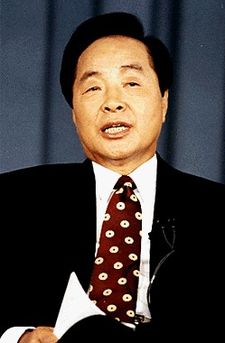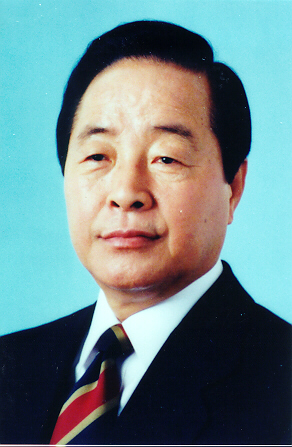<Back to Index>
- Physicist David Joseph Bohm, 1917
- Painter Ivana Kobilca, 1861
- President of South Korea Kim Young-sam, 1927
PAGE SPONSOR


Kim Young-sam (Korea: 김영삼, Hanja: 金泳三, born 20 December 1927) was a South Korean politician and democratic activist. From 1961, he spent 30 years as South Korea's leader of the opposition, and one of Park Chung-hee's most powerful rivals.
He was the first civilian President of South Korea since a series of dictatorships beginning
with Syngman Rhee. Kim Young-sam was inaugurated on 25 February 1993
and served a single 5 year term. He presided over a massive
anti - corruption campaign, the arrest of his two predecessors, and an
internationalization policy called Segyehwa. Kim graduated from Seoul National University in 1952 with a B.A. in Philosophy, and served in the South Korean armed forces during the Korean War. In 1954 he was elected to the National Assembly of South Korea and served nine terms representing districts in Geoje and Busan. He was the youngest ever to serve in the National Assembly. He resigned his National Assembly seat when Syngman Rhee attempted to amend the constitution of South Korea and became a leading critic, with Kim Dae-jung, of the military governments of Park Chung-hee and Chun Doo-hwan.
He was expelled from the National Assembly for his democratic
activities and banned from politics from 1980 to 1985. In 1983, he
undertook a 21 day hunger strike protesting the dictatorship of Chun
Doo-hwan. When the first democratic presidential election was held in 1987 after
Chun's retirement, Kim Young-sam and Kim Dae-jung ran against each
other, splitting the opposition vote and enabling ex-general Roh Tae-woo,
Chun's hand picked successor, to win the election. In 1990, he
unexpectedly merged his Peaceful Democracy Party with Roh's ruling
D.J.P. (Democratic Justice Party). As the candidate of the center, he
defeated Kim Dae-jung in the 1992 presidential election. He was only the third civilian to hold the office, and the first since 1960. The
Kim Young-sam administration attempted to reform the government and
economy. One of the first acts of his government was to start an
anti - corruption campaign, requiring government and military officials
to publish their financial records, precipitating the resignation of
several high ranking officers and cabinet members. He had Chun and Roh
arrested on charges of corruption and treason, winning convictions
against both. Kim also granted amnesty to thousands of political
prisoners, and removed the criminal convictions of pro-democracy
protesters who had been arrested during the Gwangju massacre in the aftermath of the Coup d'état of December Twelfth (which is now officially described as a mutiny). The anti - corruption campaign was also part of an attempt to reform the chaebol,
the large South Korean conglomerates which dominated the economy.
However, implication of corruption on the part of his second son, led
to a loss of confidence; his new ministerial party, the DLP lost its
narrow majority in the National Assembly in 1996. Kia Motors collapsed soon thereafter, setting off a chain of events which embroiled South Korea in the 1997 Asian Financial Crisis during the last year of his presidency. (South Korean presidents are limited to a single 5 year term according to the 1987 Constitution of the Republic of Korea.) After
his presidency, Kim promoted democracy throughout the world, speaking
at events such as "Towards a Global Forum on New Democracies" in Taiwan in January 2007. Kim is a member of the Chunghyun Presbyterian Church and is fluent in Japanese.